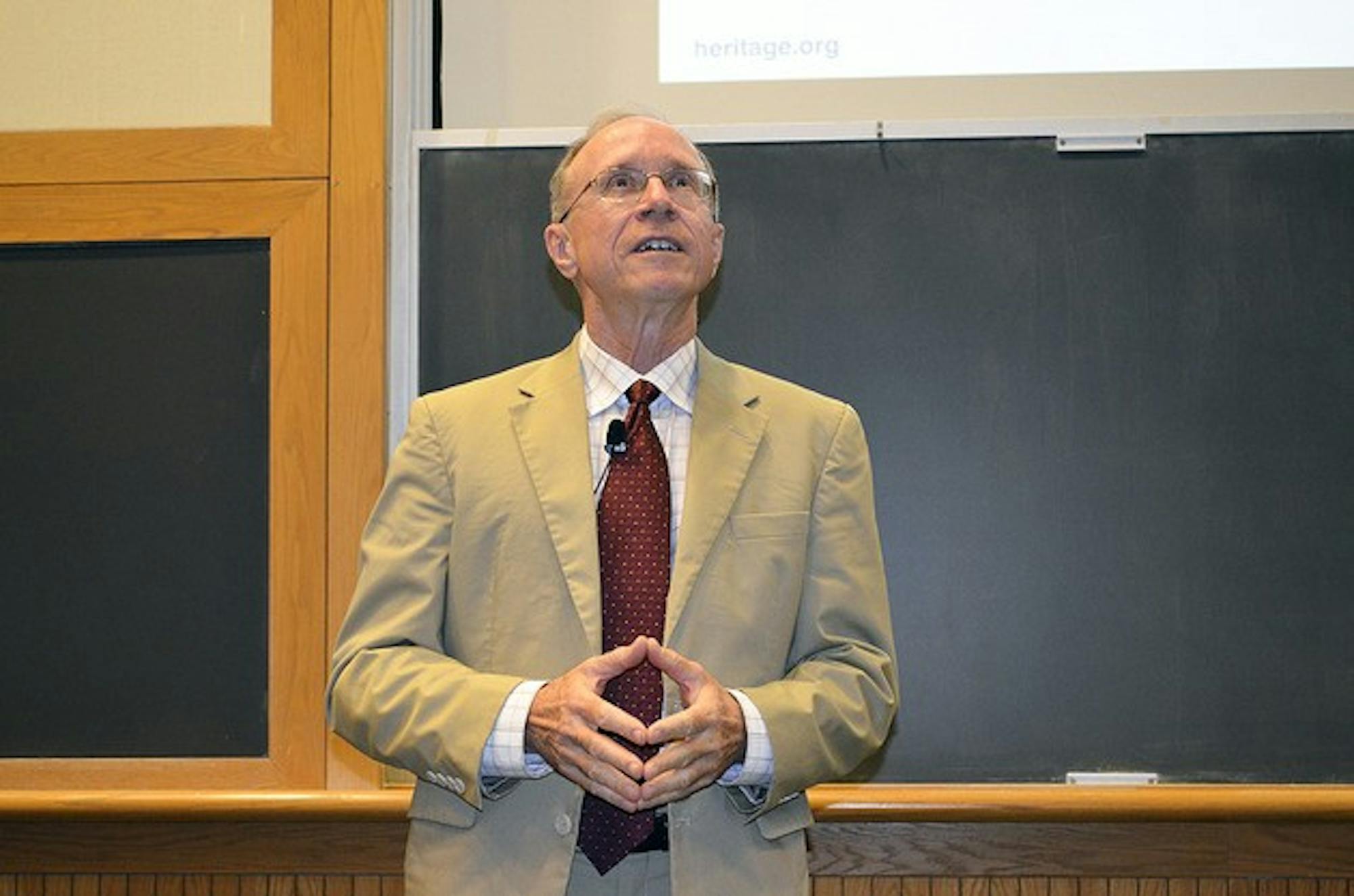Because most of the discussion in Washington about debt focuses on Social Security, Medicare and Medicaid, people under the age of 30 are often left out of important conversations, Beach said.
As government debt increases, the economy will inevitably slow in a way that will have negative social implications for current students, he said.
"Slower economic activity will slow wage growth because there is less money, less demand," he said.
An unstable economy can cause people to delay marriage because they are uncertain about the future, Beach said. This factor can then lower a nation's birth rate, which subsequently decreases a generation's labor force. Although a smaller workforce can drive up wages, this trend ultimately shrinks the economy, he said.
The national debt will grow to unmanageable proportions if no policy changes are implemented, Beach said.
"Social Security, Medicare and Medicaid will push total debt to three times the size of the economy by 2050, and by 2083, to 7.5 times the size of the economy, based on conservative outlays [by the Congressional Budget Office]," he said.
Programs like working-age health care, welfare, Social Security, Medicare and Medicaid drive the country's deficit, he said. Of the 4,200 government programs, 47 constitute 70 percent of the federal government's spending, not including defense. Cutting programs such as National Public Radio and reducing foreign aid will not substantially contribute to fixing the fiscal problem, according to Beach.
Beach emphasized a need for immediate action to fix the current fiscal crisis. As Congress aims to solve the deficit crisis within eight legislating days of the presidential election, the government will likely pursue higher taxes and decreased spending, he said.
Beach attributes the nation's current problems to mistakes made by both Democrats and Republicans, saying that the two parties are "equally responsible" for the problem.
Because they face an uncertain financial future, students should form a habit of saving and working with financial planners, he said.
"If you are going to have less income, you're going to need more efficient expenditures," Beach said.
Robert Smith '14 said that the lecture presented important information for students.
"Unless we get entitlements under control, we're going to be facing an economic crisis unlike any we have ever seen," he said.
Catie O'Sullivan '14, one of PoliTalk's discussion leaders, also said she found the lecture relevant to students and agrees with Beach's push for change.
"I think the national, long-term economic outlook is a major issue in U.S. policy, and it's something that we as young people need to start talking about," she said. "It is clear that change is needed, and it was inspiring to discuss some of the main economic challenges and potential solutions with Mr. Beach."
PoliTalk, a student discussion group on politics and public policy topics, invited Beach to speak, according to Director of the Heritage Foundation's Young Leaders Program Internship Initiative Heather Pfitzenmaier.
"We love to see young people engaging on these different issues," Pfitzenmaier said. "One thing we like to do on any campus is getting know the different student organizations and getting to work with them."
Beach said he identifies himself as the chief "number cruncher" within the Heritage Foundation, a public policy research organization. He and his team of 13 work with economic models and government data to evaluate the impact of different national policies.
"I think we are most occupied with anything dealing with the budget, with the great debt crisis we have as a result of bad budgeting, bad planning and bad design of programs," he said. "Second to that is health care. Everyone in Washington has a role in the health care debate."
The lecture titled "The Government's Fiscal Crisis: How it Will Affect Your Earnings and Your Life" took place in the Rockefeller Center.




